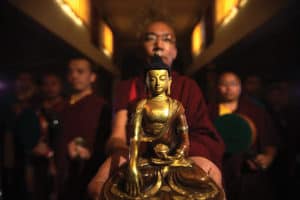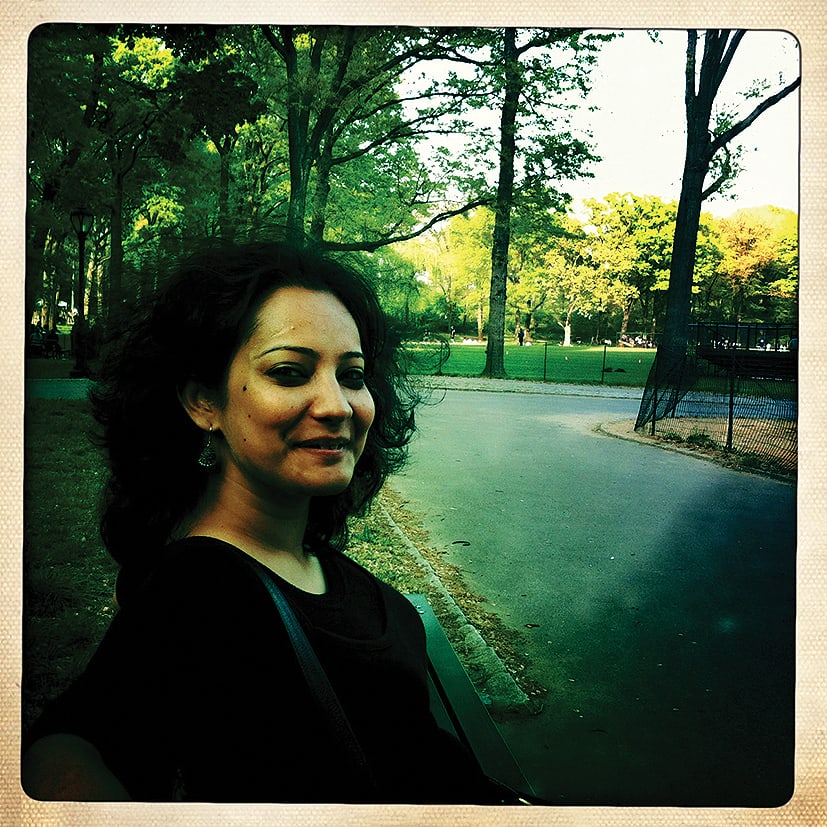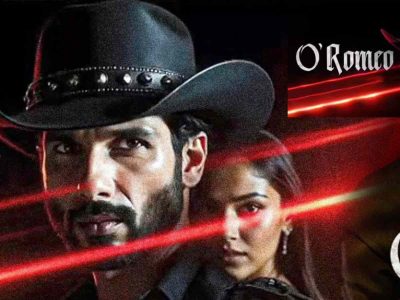National award-winning director Aparna Sanyal is back with another film that tells us the story of the monks who won a Grammy
It was back in 2004, when the monks of Palpung Sherabling Monastery grabbed the Grammy for their chants. Taking us through their remarkable journey, director Aparna Sanyal’s latest film, The Monks Who Won the Grammy, is about much more than just the Grammy. The film gives us a glimpse of the history, mythology and philosophy of Tibetan Buddhism.
Aparna won the national award for A Drop of Sunshine, a film based on Reshma Valliappan’s fight with schizophrenia and has also produced the Indian chapter of Ice Road Truckers. The director talks to Patriot about her latest film, her journey, inspirations and much more…
Could you tell us a little about your childhood and background?
I have been living in Delhi for more than 20 years now, but because I spent my formative years in Allahabad and Patna, I consider myself a small-town girl. After school, I did my graduation in Economics from the Hindu College. I started working while doing my graduation — largely because I was looking for an escape route from the seeming inevitability of having to do an MBA. I really enjoyed the work I did with a TV production house and decided that Mass Communication could be the exit option that I was looking for.

I got through the course at Jamia but even after the course, I wasn’t really sure about what I wanted to do. I joined news channels, but journalism didn’t enthuse me at all. What I enjoyed was telling stories, going to different places for filming, meeting different kinds of people — just being able to experience things that weren’t naturally part of my own milieu.
It was only when I started my own production house in 2008 — 9 years after I first began working — that I really felt that I had come into my own. Since then, it has been a very challenging, but fulfilling journey. I have put together massive international documentaries, created films and videos for different kinds of clients, conducted seminars and talks, been on juries and most importantly, made independent films on subjects that are complex but compelling.
What drew you to film-making? How did this journey begin?
My first film was made with two of my classmates, as part of our coursework during our Master’s. That’s really when I got hooked to documentary-making as a form. For the first time ever, I just had a real sense of purpose. I had always felt like I lived my life in silos and I enjoyed doing many different kinds of things. But while making the film, I felt like my disparate parts came together finally.
Can you tell us about your latest film, The Monks Who Won the Grammy? What is the story behind the film?
It all began in 2013 when the monks from Palpung Sherabling Monastic Seat in Himachal Pradesh and the celebrated Kathak guru, Shovana Narayan, put together a concert. It was quite an interesting project, where Kathak and Chau dancers shared space with Buddhist chants, monks and instruments. I was asked to make a film on this unusual collaboration.
The film gave me an opportunity to work very closely with both Shovana ji and the monks. And from that experience, emerged two independent films — one on Shovanaji and the other on the monks of Palpung Sherabling. The film on the monks was made with a film-making grant from Films Division of India and a research grant from the Charles Wallace India Trust.
What propelled you to make a film on this subject?
I had turned to reading about Buddhism when I was making a film on schizophrenia. I had once heard His Holiness, the Dalai Lama say that western psychology was human psychology at the kindergarten level. That had made me extremely curious, and I indeed found that Buddhism was able to explain many things about human conditions far better.
When I first met the head of the Palpung Sherabling Monastic Seat, a revered Rinpoche in the Kagyu lineage of Tibetan Buddhism, I returned with a lot of respect for him. I am otherwise very sceptical of gurus, but he didn’t behave like one. He was really grounded and had a great sense of humour. Over a year’s time, I got to meet him quite a few times. He would share stories about Palpung, the Kagyu lineage, Tibetan Buddhism, its Indian roots, etc. I was enthralled by the stories.
At the same time, I also became friendly with some of the monks. These were very formal relationships, of course, but there was a lot of genuine warmth. I felt a very strong connection with the people there. By then, I was also devouring books on Buddhism — researching is my favourite part of making a documentary. It was a crash course of sorts in Buddhism. So everything came together, and I really wanted to tell what I thought was a fascinating story of Buddhism, Vajrayana, the Tibetans, and of course, the Grammy.
How was the experience of making this film? Did you face many challenges?
It was personally a very enriching process to make the film. I wanted to bring together Buddhist philosophy, mythology and history in a way that made sense. I wanted to share what I had discovered through the making of the film, with the viewers. It was quite difficult to bring all these different things together in a cohesive manner. I really struggled with the script, and have lost count of the number of versions I came up with. I was blessed to have a very good and supportive team.
Another big challenge was the fact that my daughter was born just as I was about to sign the contract for the film. After signing the contract, I went for the first filming schedule with a barely 5-month-old baby, and it was really hard. You know how entrepreneurs talk of their companies being their babies — having worn both hats, I can now confirm that there is nothing tougher than having to look after a little human being that depends on you for everything.
What according to you is the most endearing moment in the film?
I think the most endearing moment is when the head of the monastery, the 12th Chamgon Tai Situ and the chanting master, Omze Kale, speak about the Grammy award.
What did you want the audience to take away from this film? What emotions do you want them to leave with after watching the film?
I hope that the film leaves them thinking.
From a movie on the journey of a young woman suffering from schizophrenia to a documentary on Shovana Naryan, you have explored several interesting subjects. How do you select such topics?
Well, I like to think that there is a bit of magic in the way these films come about. Each independent film that I make helps me figure out something important in my own life. My films take me on wonderful journeys, and I think they help me live life better and more meaningfully. All my films begin with a personal quest, and the journey to find some sort of an answer is what the film becomes. Unfortunately, not all of my quests are funded!
My attempt with every film is to be as honest and vulnerable as possible during its making. To not have all the answers and to struggle with finding the right tone. There is a lot of pressure to make a certain kind of film, but I feel that each film reveals the form it must take during its making, and for me that is where the charm of film-making lies. I used to love acting, and taking on different kinds of roles while in school and college — in a way, my films do that for me now.
Any recent documentary or series that really inspired you?
I just screened a beautiful documentary at the India Habitat Centre as part of their monthly film appreciation series. It’s a film called Vaikhari, which looks at the padhant — the art of recitation of mnemonic syllables — in Hindustani classical music and dance. It’s an immersive experience in a gurukul, almost meditative.
Is there any subject that you really want to work on? What are the plans for your next project?
I am working on another interesting, but difficult film. It looks at ideas around death, and our unwillingness to acknowledge its inevitability. Can one prepare for death — whether one’s own, or a loved one’s? I don’t really have an answer yet. Currently, the film is at a stage where I feel that what I’ve put together is terrible. It’s a necessary step in the making of all my films. Hopefully, my feelings about it will change by the time we finish the next cut.




